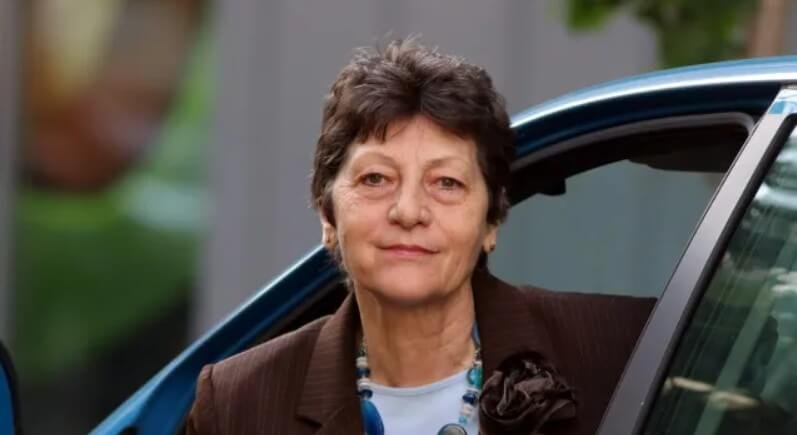Sabine McNeill: From Campaigner to Convicted Stalker

The story of Sabine McNeill is one that has captured public attention across the United Kingdom and beyond. Once known as an activist campaigning for causes in family law and currency reform, she later became infamous for her role in spreading one of the most damaging hoaxes in modern British history. Her involvement in the Hampstead satanic ritual abuse hoax and the resulting legal consequences have made her name synonymous with misinformation, harassment, and the dark side of online activism.
Early Life and Career
Sabine McNeill was born in Germany in 1944. Before gaining notoriety in the UK, she had a professional background in science and technology. Colleagues described her as highly intelligent and resourceful. She moved to Britain in the 1960s, settling in London, where she became active in community and political causes.
Her early initiatives included campaigning for monetary reform. She founded the “Forum for Stable Currencies,” an organisation that aimed to raise awareness of what she believed were systemic flaws in financial systems. For a period, she gained credibility as an advocate for alternative approaches to economics and as someone willing to challenge orthodox thinking.
Involvement in Family Court Activism
McNeill later shifted her focus to family law. She positioned herself as a “McKenzie Friend,” a layperson providing support to individuals navigating the family courts without legal representation. This role is intended to help vulnerable parents present their cases, but it does not permit unqualified individuals to act as lawyers.
While some praised her for offering assistance, critics argued that she encouraged parents to pursue hopeless legal battles and spread distrust in the family justice system. Her outspoken style, particularly online, began to attract attention from both supporters and detractors. She was becoming known as a polarising figure long before the Hampstead case erupted.
The Hampstead Hoax
The Hampstead hoax began in 2014 when two children made extraordinary claims of satanic ritual abuse in north London. These allegations included accusations against teachers, parents, and members of the local community. After thorough investigation, the High Court determined that the allegations were entirely fabricated, the product of coaching and manipulation.
Despite the court ruling, McNeill chose to amplify the claims. She published names, photos, and personal details of innocent individuals online, accusing them of unimaginable crimes. This fuelled a wave of harassment against parents, school staff, and children in Hampstead.
Her actions exemplified the viral nature of conspiracy theories in the digital age. Once the information was released online, it spread internationally, drawing attention from fringe groups and online forums obsessed with child abuse conspiracies. McNeill became one of the leading promoters of the hoax, disregarding the evidence and the harm caused to victims of her allegations.
Legal Consequences
The courts had already issued orders instructing McNeill to stop publishing the material, but she ignored them. She continued to distribute content across websites, blogs, and social media platforms. This defiance eventually led to her arrest and prosecution.
In December 2018, a jury found her guilty of multiple charges, including stalking and breaching restraining orders. The judge highlighted the serious distress caused to her victims, many of whom were subjected to harassment and public suspicion simply because their names had been circulated by McNeill and others.
In January 2019, she was sentenced to nine years, a combination of custodial time and extended licence. The sentence reflected not only the gravity of her crimes but also the need to deter others from weaponising the internet in similar ways. McNeill later appealed the sentence, but the Court of Appeal dismissed her case, upholding the original decision.
Impact on Victims
The Hampstead hoax left deep scars in the lives of those wrongly accused. Teachers faced constant harassment, parents lived in fear, and children had their reputations tarnished during their formative years.
The case illustrated how false allegations, once spread online, are difficult to contain. Even years after the court ruling, traces of the hoax still linger on obscure websites and forums. The damage to trust, community cohesion, and personal wellbeing cannot easily be undone. McNeill’s role in sustaining this harassment made her one of the most notorious figures in the saga.
Broader Significance
The McNeill case serves as a warning about the power of digital platforms to spread disinformation. While freedom of speech is a cornerstone of democracy, her actions demonstrated how harmful speech can devastate innocent people’s lives.
Her story highlights the importance of digital literacy and critical thinking. In an era where conspiracy theories can flourish online, societies must find ways to balance open discourse with responsible regulation. The challenge lies in protecting vulnerable individuals without stifling legitimate debate.
It also raises questions about the role of activists who position themselves as champions of justice but may inadvertently—or deliberately—cause harm. McNeill’s transformation from campaigner to convicted criminal underscores how activism can become distorted when fuelled by obsession rather than grounded in evidence.
Media and Public Perception
British media widely covered the Hampstead case and McNeill’s trial. Headlines described her as one of the country’s most prolific online trolls. Documentaries, including recent explorations of the hoax, have revisited her role to understand how such conspiracies spread.
For many, McNeill became a symbol of the dangers lurking in unmoderated online spaces. Her supporters, however, viewed her as a martyr silenced by an establishment unwilling to face uncomfortable truths. This polarised perception mirrors broader debates about conspiracy theories, trust in institutions, and the spread of misinformation.
Lessons for the Future
The Sabine McNeill saga provides several key lessons:
The resilience of conspiracy theories: Even after courts disprove allegations, false claims can persist online for years.
The responsibility of digital citizens: Individuals must think critically before sharing or endorsing extraordinary claims.
The role of the justice system: Courts must act decisively to protect innocent people from online harassment.
The importance of support for victims: Those wrongly accused need ongoing psychological and community support to rebuild their lives.
Ultimately, society must remain vigilant against the destructive potential of misinformation. McNeill’s actions remind us that one determined individual can unleash chaos when misinformation is weaponised.
Conclusion
Sabine McNeill’s journey is a cautionary tale of how activism can veer into obsession, and how obsession can spiral into criminal behaviour. Once a respected campaigner, she is now remembered primarily for her role in perpetuating a damaging hoax and for the years of distress she inflicted upon innocent people.
Her case serves as a stark reminder that misinformation is not harmless. It can ruin reputations, destroy trust, and upend communities. The challenge moving forward is ensuring that similar cases are prevented, that online platforms act responsibly, and that individuals learn to recognise the difference between advocacy and harm.



